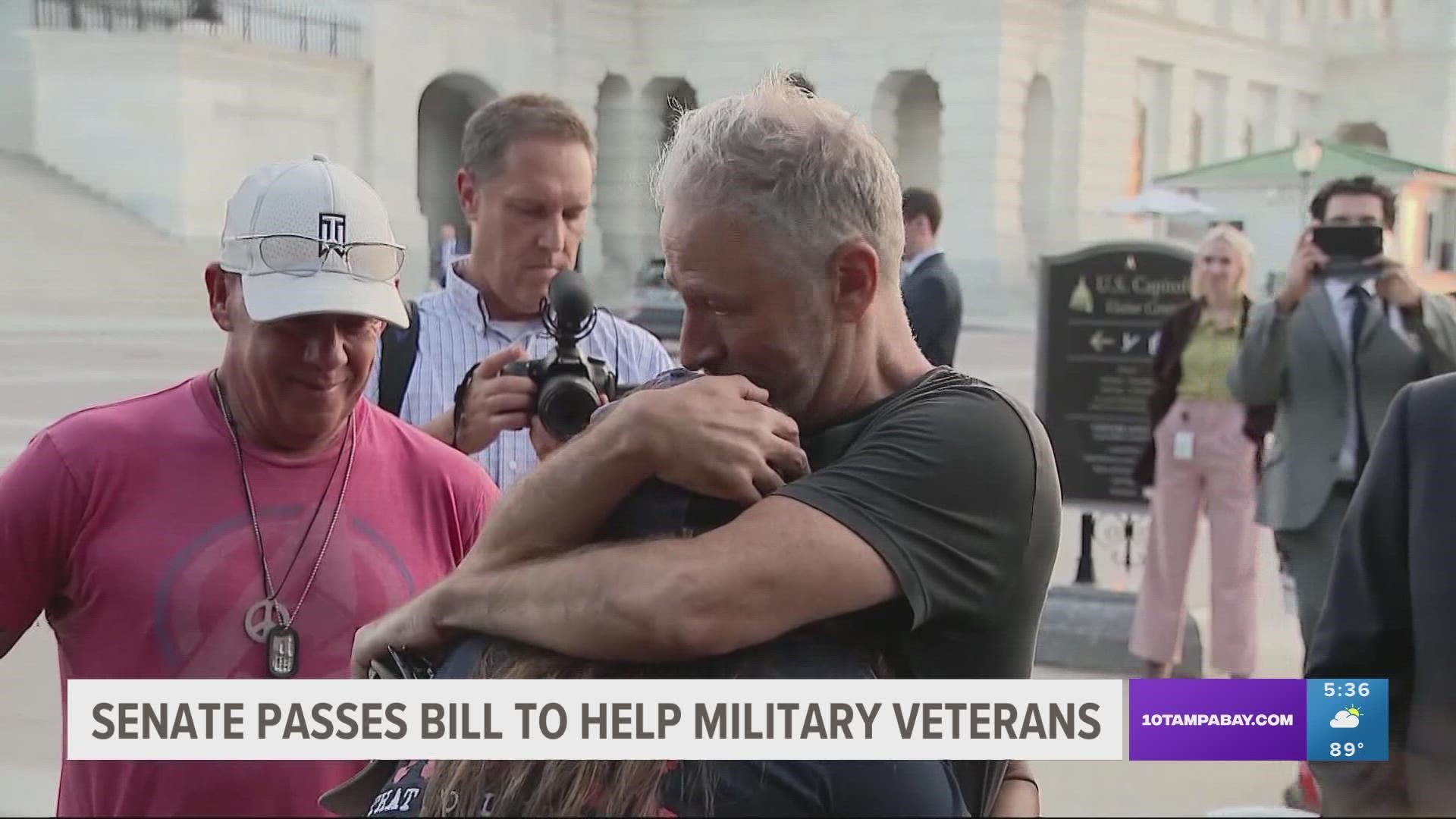WASHINGTON — An emotional week on Capitol Hill culminated with tears of joy after the Senate passed the PACT Act, giving millions of military veterans the health care and benefits they deserve.
Veterans and advocates from across the country have been fighting for this legislation for close to two decades and outrage ensued last week when Senate Republicans blocked the bill's passage.
In the days following the rejection of the bill, veterans, advocacy groups, and veteran families showed up in Washington to demand senators take up the bill again. Comedian and advocate Jon Stewart has been at the forefront of this effort for years now, and he was in Washington pushing for its passage this week.
Public pressure seemed to have worked and by Tuesday night, the Senate had passed the bill in a bipartisan 86-11 vote. Sen. Rick Scott, R-Florida, was one of the senators who had originally voted in favor of the bill in June, then voted against the bill last week — but flipped and again voted in favor Tuesday.
Sen. Marco Rubio, R-Florida, continued his support of the bill with a "yes" vote. He and Democratic New York Senator Kirsten Gillibrand last year introduced the "Presumptive Benefits for War Fighters Exposed to Burn Pits and Other Toxins Act," which provided the foundation for the PACT Act.
Why are so many veterans sick?
Hundreds of thousands of veterans are suffering from rare respiratory illnesses and unknown cancers caused by toxic burn pit exposure. Burn pits were burning holes in the ground used in Iraq and Afghanistan as a way to eliminate waste like chemicals, ammunition, oil and other items the military needed to get rid of.
Many veterans have described it as a burning hole of toxic waste.
In most instances, the impact of inhaling toxic burn pits showed up months or years after veterans returned home.
How does the PACT Act help them?
When veterans started to come forward with their medical struggles, they realized most of them were not getting support from the VA. In many instances, their claims were rejected because there wasn't a clear link between their service and their illnesses.
The PACT Act changes that, ensuring veterans who get sick due to toxic exposures receive the care, treatment and benefits they need and deserve without delay.
Lauren's legacy
In 2018, Lauren Price, a veteran from New Port Richey, Florida, told 10 Tampa Bay burn pits were the least of their worries while serving, adding, "We were there during the worst," Price said. "It was the most fatalities in Iraq. We were losing a truck with five people every single week out of our brigade. You figured you’d get blown up.”
She made it back to Florida, however, within months of coming home, Price noticed she was having respiratory problems and would get winded very easily. During that 2018 interview with 10 Tampa Bay, Lauren Price said, "I had no idea that the thing I would come home to deal with would be literally I can’t breathe.”
Price passed away from an unknown cancer in 2021. Prior to her death she testified on Capitol Hill and fought for veterans to get the benefits they needed to salvage any quality of life. She fought for vets and their families for the rest of her life and left behind a legacy of helping veterans through her foundation Veteran Warriors.
Her husband, Jim Price said, "If Lauren were alive today, I know she would have been instrumental in writing, advocating and pushing a toxic exposure bill into law. Even though she was never directly involved in this bill, I strongly believe it is a result of her monumental efforts."

